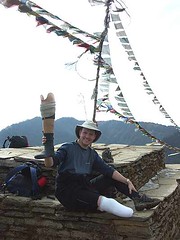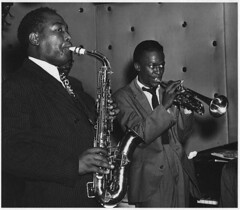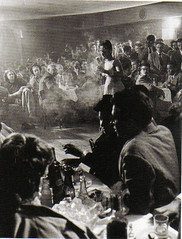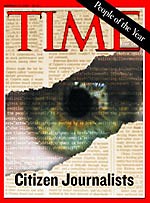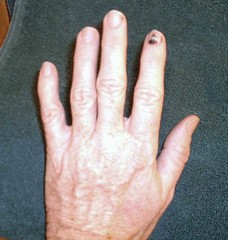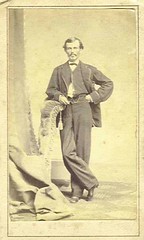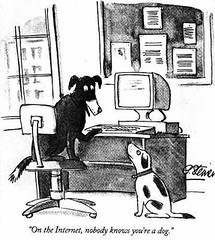As dutiful as any 50's dad, when I was about six my father decided I should have a dog. After all, what could be more Norman Rockwell than a boy and his dog? A dog would provide companionship, instill responsibility, and provide tangible lessons about the natural world. A real pet might also curb my conversations with my three imaginary friends, budding relationships that may have been both annoying and disquieting to my father.
A business associate of dad's bred Cocker Spaniels, so a series Cocker Spaniels appeared. A series because, whatever the other fine qualities of the breed, Cockers fare poorly in traffic. Shortly after each was brought to the house they felt that highway call. Each found new ways to defeat the purpose of the fence around our house. They did not last long. After burying our third dad gave up on Cockers and secured a nondescript hound I named Music. No less interested in cars, Music chased them for over a dozen years, surviving all encounters save his last. Music and I did become a fine pair, just as dad planned. But this is not about Music.
To quiet this crying small child, with each Cocker Spaniel/Automobile incident I was counseled about Doggie Heaven. As an attentive and studious child in Sunday School I was rapidly developing an understand of things Christian, at least the Methodist variety. Doggie Heaven was a variation on an established theme and, in the short term at least, served its purpose. But, even to my young ears, along with Santa Claus and the Tooth Fairy, Doggie Heaven sounded a bit too convenient, a bit contrived. Not wanting to press my parents about any of these but still curious, one Sunday I decided to ask my Sunday School teacher if there really was a Doggie Heaven. And - I liked two part questions even then - was it close enough to "real" heaven for me to play with my old pets when I got there.
Flustered, she left the room to seek counsel. As we waited uneasily - she never left us alone before - I started to wonder if I had done a bad thing by asking my question. The other students started to stare at me. We heard her go from classroom to classroom, calling a conference of her colleagues in the hall and talking in hushed but animated tones. Finally she returned to announce that there was no such thing as Doggie Heaven. Heaven was for creatures with souls. Dogs had no souls, therefore no Doggie Heaven. She seemed relieved to return to our planned lesson. I am sure we all were.
I think I took the official word better than some in our class. After all, in raising the question I was showing a willingness to hear the answer. Several of my classmates, probably with dogs of their own, were not. To the relief of all concerned, I think that was my last public direct theological question for the Methodists. I am sure I was watched a bit more carefully after that.
This memory floated into my consciousness the other day as I was thinking about what I actually learned in Sunday School. I would not describe myself today as a Christian, much less a Methodist. But in the credit-where-credit-is-due department, many values I hold today probably were first introduced and reinforced to me in that Sunday School.
My favorite was the story of the Good Samaritan. I really liked the part when Jesus threw the money changers out of the temple. Yes, the Old Testament had the best stories, but the New Testament had the best lessons. The Golden Rule, not first or exclusively Christian, remains as good a place to start as any when confronting life's interpersonal relations. And I am not sure those good southern white women of Sunday School appreciated how I was interpreting the song, "...red and yellow, black and white, they are precious in his sight, Jesus loves the little children of the world." Brown v. Board of Education was handed down about this time and even this eight year old knew what it was about and which side Jesus would be on.
With so much of Christianity just not making sense as I grew older, it has been easy over the years for me not to appreciate what I continue to value from those hours spend in that Methodist Sunday School. Most long dead now, my teachers were good people trying to help raise me right. I hope I have not disappointed them too much.
They may even have taught me to ask questions.
 Stuart Hughes is a world news producer with BBC World Newsgathering. The young Welshman's blog begins in February 2003 while stationed in northern Iraq. Shortly thereafter he stepped on an anti-personnel landmine. Five days later his right leg was amputated below the knee. His colleague was killed in the incident.
Stuart Hughes is a world news producer with BBC World Newsgathering. The young Welshman's blog begins in February 2003 while stationed in northern Iraq. Shortly thereafter he stepped on an anti-personnel landmine. Five days later his right leg was amputated below the knee. His colleague was killed in the incident.